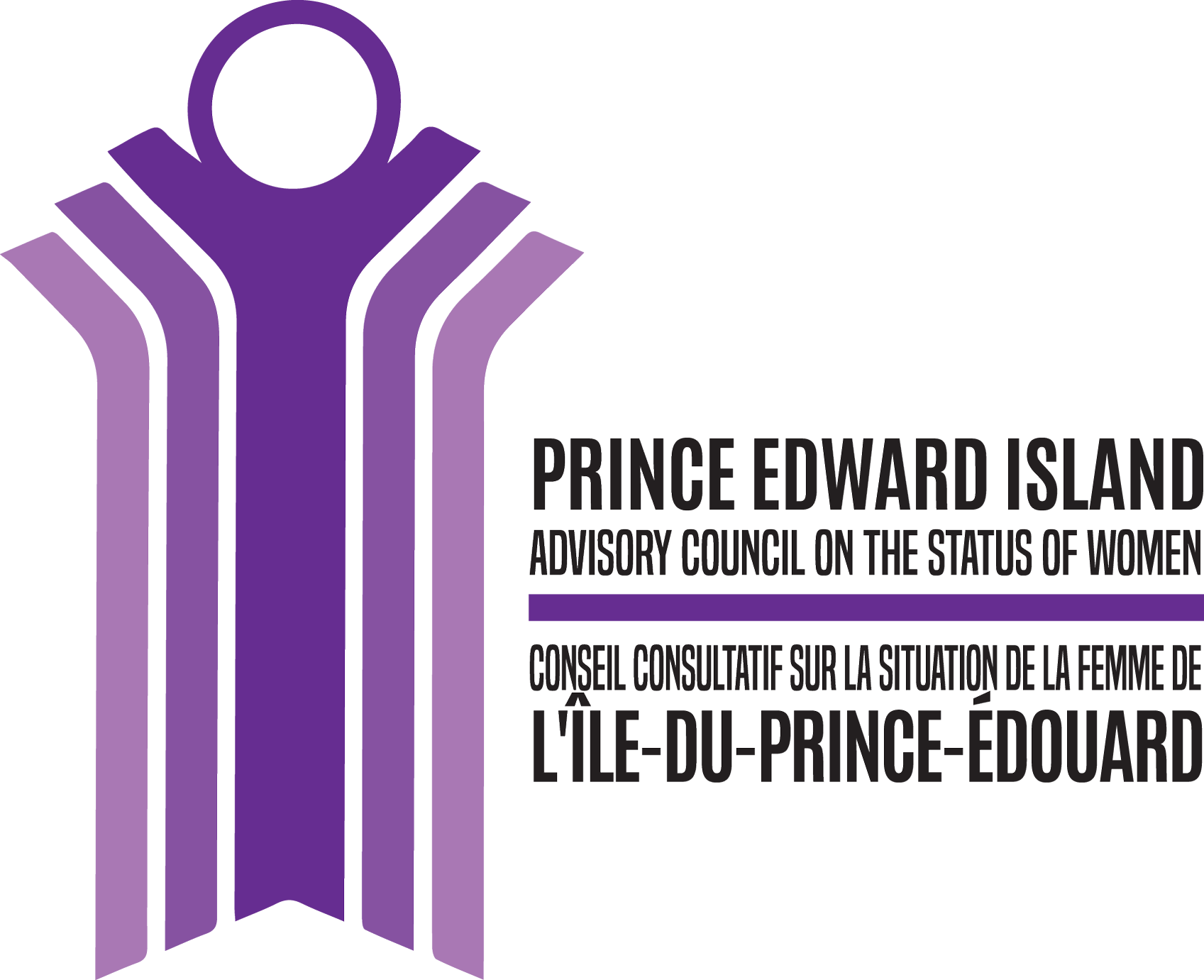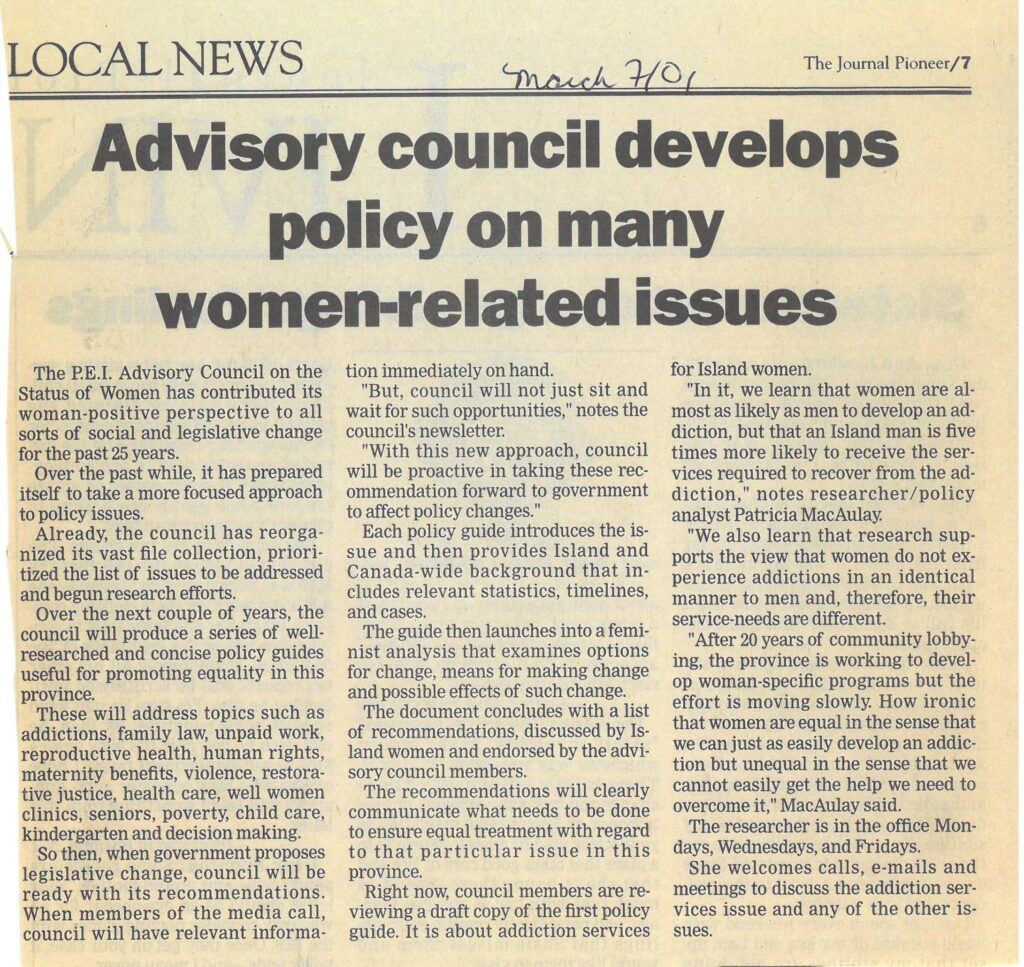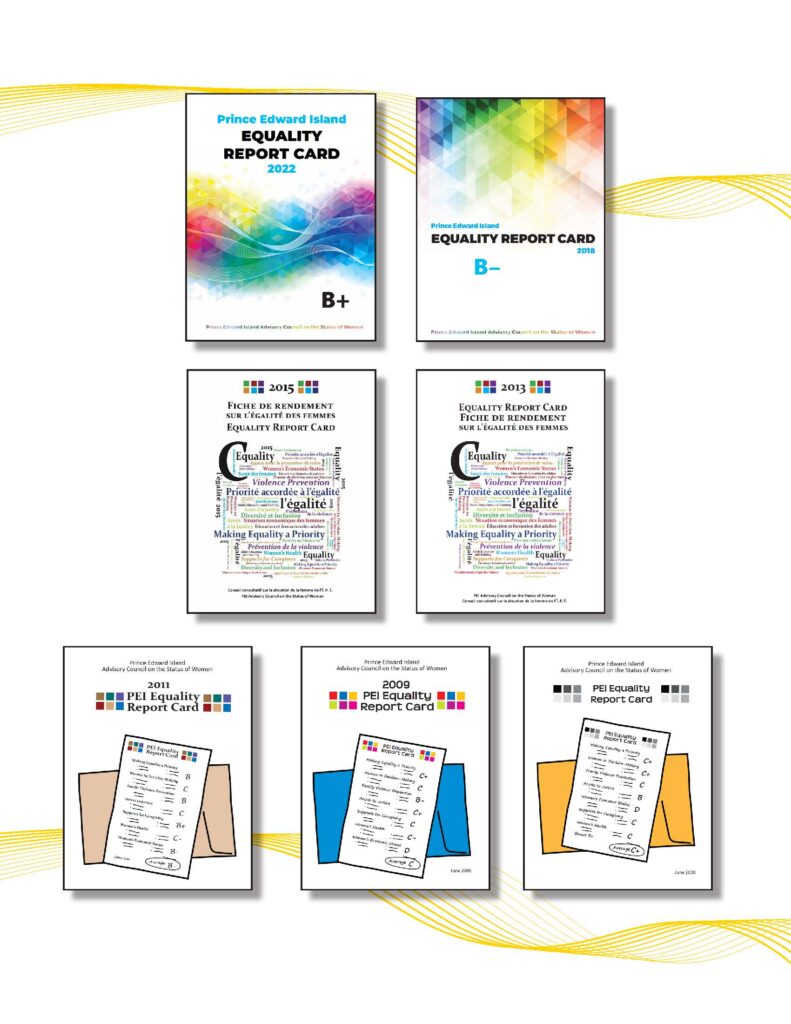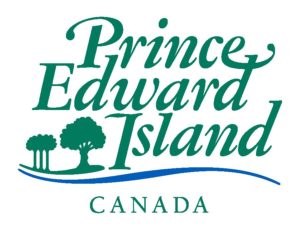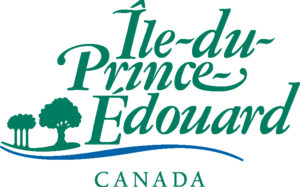The first in the series of policy guides on the issues was released in June 2001, on Women and Addiction Services. The project was led by the Council’s first researcher/policy analyst Patricia MacAulay.
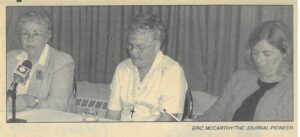
Journal-Pioneer coverage of the launch of the first Policy Guide by the PEI Advisory Council on the Status of Women, “Women and Addiction Services,” in June 2001. The launch in Mill River included comments from Council Chair Patricia Roy, addictions support counsellor Sr. Anne Gillis, and Council researcher/policy analyst Patricia MacAulay.
The second policy guide focused on Family Law and recommended amendments to the Family Law Act, the Maintenance Enforcement Program, and services to family law clients. It was supported by the relaunch of the resource Moving On, as well.
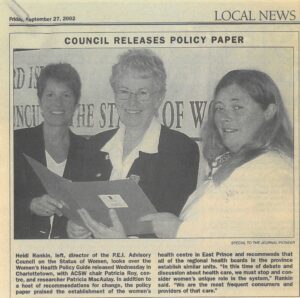
Heidi Rankin, Patricia Roy, and Patricia MacAulay launch the policy guide on “Women’s Health” in 2002.
In September 2002, the next policy guide focused on Women’s Health, and identified two major health concerns for Island women: “1) Women’s life circumstances as caretakers make their views on health issues and their health care needs unique to their gender, and 2) Women take a broad view of health and they want their health care providers to serve them accordingly.”
In June 2003, the launch of the Early Childhood Care and Education policy guide took place at the Kare-a-Lot Child Care Centre in Summerside, with Chairperson Kirstin Lund, Director Heidi Rankin, Researcher/Policy Analyst Patricia MacAulay, and Council member and early childhood educator Wendy MacLaren calling for significant investment in early childhood care and education. “A lot of Island women have worked hard over the past thirty years to develop the required infrastructure. But, their work never received sufficient public investment or political interest,” the guide reported. Recommendations called for more visibility, accessibility, affordability, quality, and inclusivity and support for parent choices in childcare.
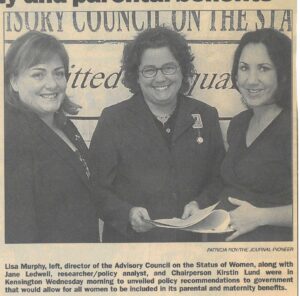
A 2004 photo from the launch of the policy guide on “Maternity and Parental Benefits”, with Executive Director Lisa Murphy, Researcher/Policy Analyst Jane Ledwell, and (visibly pregnant) Chairperson Kirstin Lund.
In 2004, when Patricia MacAulay went on leave, Jane Ledwell was hired as researcher/policy analyst. She sought the job because she was so inspired by the Policy Guides, she wanted to be part of creating them. She continued work Patricia had begun and in 2004, the next policy guide focused on Maternity and Parental Benefits
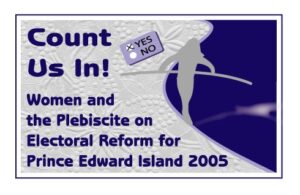
Logo from a policy guide publication, “Count Us In! Women and the Plebiscite on Electoral Reform for Prince Edward Island 2005”
The final policy guide, in 2005, focused on Women and Electoral Reform, and it took an evidence-based stand in favour of proportional representation in the context of the first provincial plebiscite on electoral reform.
By 2007, the Council had made many recommendations to government through the policy guides, but, other than a report card on family law had little feedback on which recommendations were taken up and which were not. In September 2002, Council’s report card following up on the Family Law policy guide was a notable success, but there had been no further follow up. Some positive changes from recommendations had followed, but Council hadn’t known, and so we hadn’t celebrated them.
The Council decided what we needed was an Equality Report Card to follow up on all the policy guide recommendations. After a lot of planning about what the process could look like, and a lot of work to select priority recommendations from the policy guides, in 2007, during a provincial election, instead of publishing a voter’s guide to the issues, the Council published a list of recommendations that would be assessed in a report card format. In 2008, the Council made good on the promise to follow up and published the first, pilot edition of the Equality Report Card. A refined process followed in 2009 and 2011. All these looked at progress towards gender equality in the first mandate of the Robert Ghiz government. A new assessment model was developed for each subsequent new mandate of government, with Report Cards in 2013 and 2015 for the Ghiz government’s second mandate, a mandate completed by Premier Wade MacLauchlan. The 2018 Report Card assessed the first years of the MacLauchlan government, with time after the Report Card to make more progress; the 2022 Report Card examined progress in the first term of the Dennis King government.
The next Equality Report Card will be published in April 2026 and will assess progress on gender equality in the current mandate of government which began with Premier Dennis King and continues with Premier Rob Lantz. Community consultations are underway, and all departments across government are responding to questionnaires to inform the report. The 2026 Equality Report Card will assess government’s progress through the first years of its current mandate, which began with the election in April 2023. The full assessment model, which sets out what the Council will measure and how, is available here. https://peistatusofwomen.ca/wp-content/uploads/2024/02/WEB-2026-Equality-Report-Card-Assessment-Model.pdf
